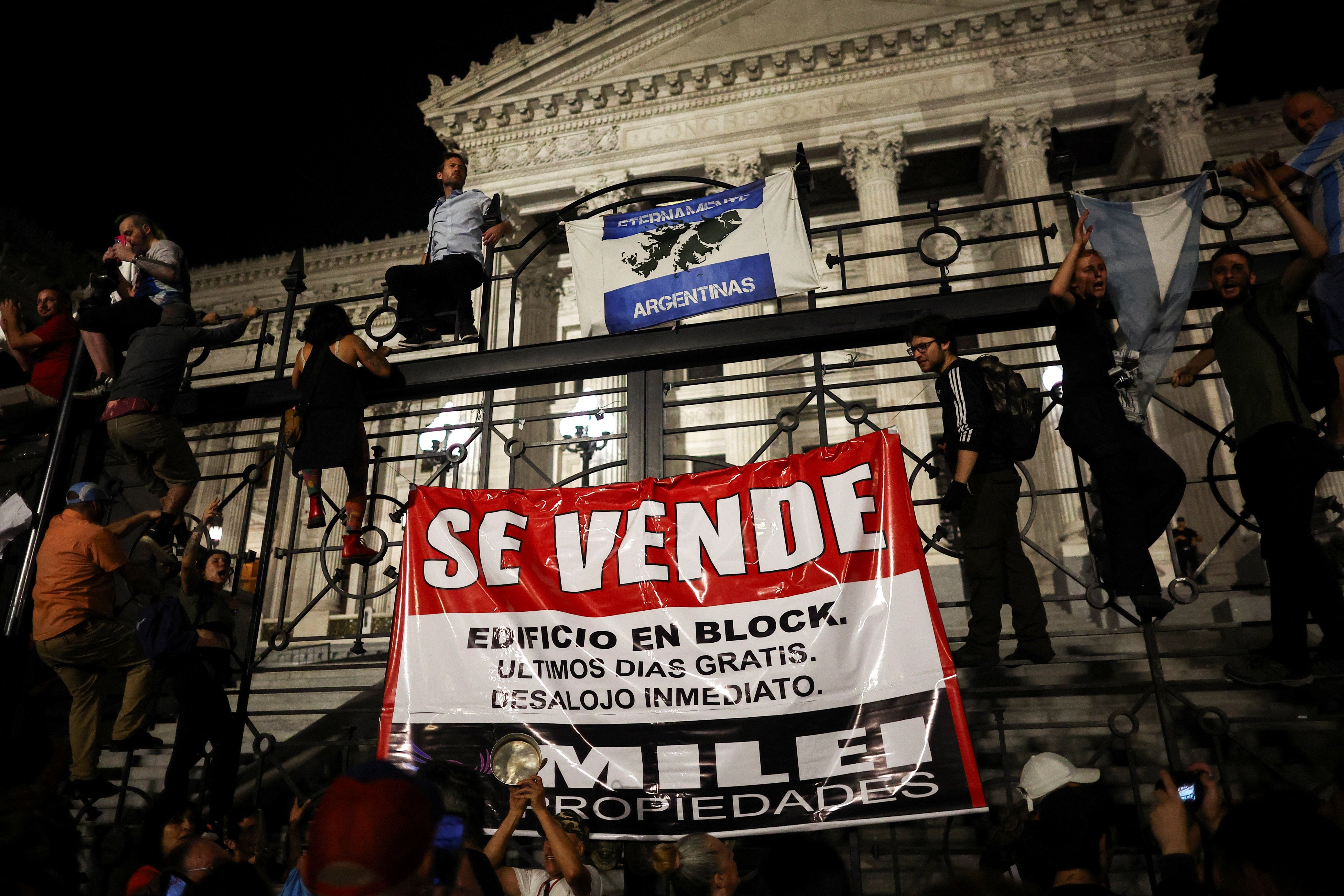Ten days after his inauguration, President Javier Milei set out to turn Argentina from a nanny state to a bastion of free market capitalism, announcing a sweeping set of economic reforms that uproot major sectors of the economy and have enraged the country’s powerful labor unions.
The decrees will privatize state-owned companies and strike down regulations in the housing market, export controls, the food industry, and other sectors to encourage competition. Worker benefits, from severance packages to maternity leave, will also be cut.
Thousands of protesters poured onto the streets of Buenos Aires on Thursday in response to the reforms. They were met with a massive show of force from the police, and no signs of backtracking from Milei, who said the participants “suffer from Stockholm syndrome … smitten with the [economic] model that impoverishes them” as he announced that further austerity measures were on the way.
Argentina’s constitution gives presidents the authority to act with authority on most areas of policy during times of crisis, which Milei argues fits the current moment since he devalued the country's currency by 50% last week.
But implementing these reforms will be an uphill battle. The reforms can’t stand if either house of Congress votes against them, which is likely given Milei’s lack of a majority and the opposition in the streets. Milei likely included so much in the decrees with the knowledge that much of it would be struck down – and in the hopes that if he threw enough at the wall, something would stick.
